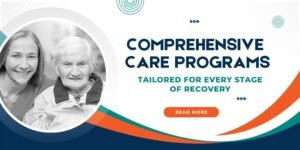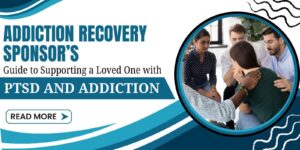The aftercare program for addiction recovery provides assurance that you will not fall trap into addiction problems again in life. Any kind of addiction whether it is alcohol addiction or substance abuse can be extremely debilitating and frustrating. However, people battling with addiction can find solace in addiction treatment programs that help them get rid of the problem.
Now, the issue that comes up is that even when you complete your treatment there are huge chances that a relapse can occur. In such a scenario an aftercare addiction treatment program becomes quintessential. It offers you the guarantee to have a drug-free healthy life. There are so many different ways how an addiction aftercare program is carried out. An addiction aftercare program is an integral part of the recovery process and therefore should be given huge short shrift.
Our navigators will help you take back control of your life.
When you call our helpline, an admissions navigator is there to listen to you, answer any questions you have, and provide the support that you need—all 100% confidentially.
Addiction aftercare treatment, often referred to as “aftercare,” is a critical component of the addiction recovery process. It is a structured program or set of services designed to support individuals who have completed primary addiction treatment, such as inpatient or outpatient rehab, and are transitioning back into their regular lives. The goal of addiction aftercare is to help individuals maintain their sobriety and prevent relapse.
Some of the components of addiction aftercare treatment have been mentioned below:
- Continued Support-Aftercare programs offer ongoing emotional, psychological, and social support. This can include individual counseling, group therapy, or support group meetings. These sessions allow individuals to share their experiences, learn coping strategies, and receive encouragement from peers and professionals.
- Relapse Prevention – aftercare programs focus on teaching relapse prevention skills. Participants learn to identify triggers and high-risk situations that may lead to relapse and develop strategies to manage them.
- Monitoring and Accountability– Some aftercare programs may include regular drug testing or monitoring to help individuals stay accountable for their sobriety.
- Lifestyle Adjustment– Aftercare programs help individuals make positive lifestyle changes. This may involve assistance with finding stable housing, securing employment, and rebuilding relationships with family and friends.
- Education– Education about addiction, its effects on the body and mind, and the importance of ongoing recovery is a fundamental component of aftercare. This knowledge empowers individuals to make informed choices.
- Medication Management– For individuals in medication-assisted treatment (MAT) programs, aftercare may involve continued monitoring and management of their medication regimen.
- Peer Support-Peer support networks, such as 12-step groups like Alcoholics Anonymous (AA) or Narcotics Anonymous (NA), are often a vital part of aftercare. These groups provide a sense of community, shared experiences, and ongoing guidance.
When it comes to addiction recovery, not enough can be said about the importance of addiction aftercare treatment. It plays a crucial role in helping individuals maintain their sobriety, prevent relapse, and build a healthy, substance-free life after completing primary addiction treatment.
Addiction is a chronic disease with a high risk of relapse. Aftercare programs provide ongoing support and strategies to help individuals recognize and manage triggers and cravings, reducing the risk of returning to substance use.
Aftercare programs offer a structured support system that can be essential for individuals in early recovery. It provides a safe and understanding environment where individuals can discuss challenges, share experiences, and receive encouragement from peers and professionals.
Addiction often masks underlying emotional and psychological issues. Aftercare programs focus on teaching coping skills and healthy ways to manage stress, anxiety, and other emotions without turning to substances. They also offer education about addiction, relapse prevention, and the importance of maintaining recovery. This knowledge empowers individuals to make informed decisions about their sobriety.
Addiction is a chronic condition, and recovery is an ongoing process. Aftercare extends the continuum of care, promoting sustained recovery and reducing the chances of relapse in the months and years following primary treatment.

The success of addiction aftercare treatment depends on various factors that influence an individual’s ability to maintain sobriety and achieve lasting recovery. These factors can vary from person to person, but several common elements contribute to the effectiveness of addiction aftercare treatment.
- Individualized Treatment Plan-Tailoring aftercare programs to meet the unique needs and circumstances of each individual is crucial. Personalized treatment plans address specific triggers, co-occurring mental health issues, and personal goals, increasing the likelihood of success.
- Timely Transition smooth transition from primary addiction treatment (such as inpatient or outpatient rehab) to aftercare is essential. Ensuring continuity of care and minimizing gaps in support helps individuals maintain the momentum gained during their initial treatment.
- Motivation Levels of an Individual individual’s motivation and commitment to recovery play a significant role. Success is more likely when individuals actively participate in aftercare services and are committed to making positive changes in their lives.
- Regularity-Consistency in attending aftercare sessions, whether individual therapy, group meetings, or support groups, is vital. Regular participation helps individuals stay focused on their recovery goals and build a sense of community and accountability.
- Counseling-Ongoing counseling or therapy is often a key component of aftercare. Individual and group therapy sessions provide a safe space to address underlying issues, learn coping skills, and receive emotional support.
- Continuous Assessment– Regular assessment and adjustment of the aftercare plan are important. Monitoring progress and modifying the plan as needed ensures that treatment remains effective.
So, these are some of the factors that contribute to the success of an addiction aftercare program.
Check to see if your insurance is in-network at an American Addiction Centers location
We’ll instantly check the coverage offered by your insurance provider.
Participating in an addiction aftercare program is extremely important to avoid chances of relapse. Addiction is not easy to handle. Staying away from alcohol and other substances is way harder than you think. So, for continued sobriety going in for addiction aftercare is quintessential. These aftercare programs help you lead a substance–free life. Sustained recovery is the prime goal and this is what they help you achieve.
It is not easy to find the right addiction aftercare program if you do not search well. Go in for a program that is sustainable and in sync with your budget and needs. The right kind of aftercare program depends on different factors such as the symptoms of an individual, his/ her specific needs, status after completion of the rehab program, etc. From sober living arrangements to outpatient aftercare therapy, opt for the one that is best suited for you.
The best aftercare program should provide you with a wide array of services such as counseling, regular checkups, education, evaluation of health status, etc. So, there needs to be a comprehensive approach to handling your case. This will only ensure continued sobriety and promise the care that you need. So, consider all of this before you select the addiction aftercare program.
Aftercare is typically a tailored and ongoing process, as addiction is a chronic condition that requires ongoing attention and support. The duration of aftercare can vary, but many individuals benefit from long-term engagement to solidify their recovery and maintain sobriety successfully. What comes in addiction aftercare programs varies according to the needs of an individual and the program they choose. In some cases, family therapy or education is incorporated into aftercare programs to address issues within the family unit and improve communication and support.









